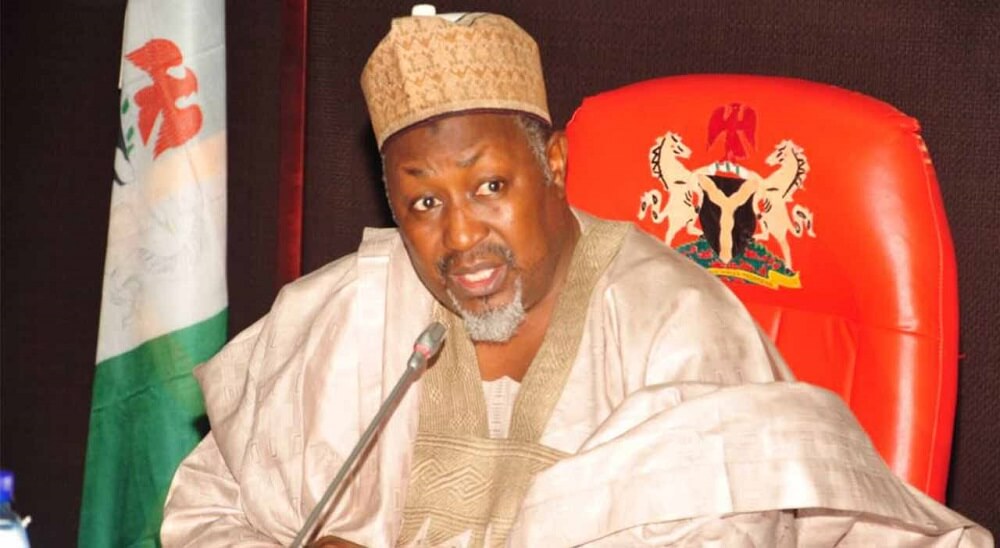The Governor of Jigawa State, Muhammadu Badaru Abubakar, has listed some of the steps that must be taken by the government and all stakeholders to enable the country take advantage of the benefits of the African Continental Free Trade Agreement.
He said this on Wednesday at the National Action Committee on AfCFTA subnational strategy workshop which had the theme “Creating economically viable communities.”
Advertisement
The AfCFTA will bring together all 55 member states of the African Union covering a market of more than 1.2 billion people, including a growing middle class, and a combined gross domestic product of more than $3.4trn.
In terms of numbers of participating countries, the AfCFTA will be the world’s largest free trade area since the formation of the World Trade Organization.
Estimates from the Economic Commission for Africa suggest that the AfCFTA has the potential both to boost intra-African trade by 52.3 percent by eliminating import duties, and to double this trade if non-tariff barriers are also reduced.
The main objectives of the AfCFTA are to create a single continental market for goods and services, with free movement of business persons and investments, and thus pave the way for accelerating the establishment of the Customs Union.
Advertisement
It will also expand intra-African trade through better harmonization and coordination of trade liberalization and facilitation and instruments across the RECs and across Africa in general.
The Governor who is also the Chairman, National Economic Council Export Promotion Committee said for Nigeria to benefit from the pact, there is need to encourage structural transformation and value chain optimization including the development of industrial and agricultural processing zones.
He called for strengthening of regulations and quality control of products produced in the country so that they are highly competitive.
He said this could be achieved through collaboration with agencies such as the National Agency for Food and Drug Administration and Control, Standards Organisation of Nigeria.
Abubakar added that the early inclusion of Governors in the inception and design phase would provide sustainability in the long run.
Advertisement
He urged the government to ensure the continuity of this policy irrespective of a change in administration.
The Governor called for an improvement in the ease of doing business nationally and sub-nationally by harmonising policies, laws, and regulatory procedures. He said this assist in attracting large-scale investment needed to position Nigeria as an industrial hub for the AfCFTA.
In improving the ease of doing business, the Governor said there is need to increase access to credit, access to land, access to labour and skill, business registration, and tax payment among others.
He said ramping up skills acquisition for Micro, Small and Medium Enterprises (MSMEs) is also key to improve their readiness for sub-national participation in the competitive market emerging from the AfCFTA.
He also called for the prevention of distortions and discrimination in trade and investment, adding that tax rights under the AfCFTA must be mutually beneficial, including cross-jurisdiction income or profit flows such as withholding taxes on payments to non-residents.
He said if effectively implemented, the agreement will provide huge export opportunities for products manufactured in Nigeria including priority export products defined in the Economic Recovery and Growth Plan (ERGP) and the Nigerian Industrial Revolution Plan (NIRP).
Advertisement
He said, “This (AfCFTA) could potentially complement Nigeria’s national development agenda in addition to acting as a catalyst for economic diversification program.
“This offers Nigerian products and services, preferential access to the huge African market which currently sources over 85 per cent of its products imports from outside the continent.
“The agreement provides immense opportunities for Nigeria’s service companies to expand to Africa, especially those in financial services, e-commerce and the digital economy.
“Nigerian companies have built critical capacity in these sectors and have long desired to expand to Africa but were constrained by trade barriers.”
Also speaking at the event, the Minister of Finance, Budget and National Planning, Mrs Zainab Ahmed said that for Nigeria to maximally exploit the opportunities presented by the AfCFTA, all economic actors, tiers of government and human capacities must be evidently involved.
She said, “All the states of the federation are endowed with varying levels of economic resources and human competencies, which can be deployed in the national interest.
“Nigeria’s responses to the AfCFTA challenge must be an aggregation of economic and human potentials of the component parts of the federation, appropriately directed towards achieving continental advantages in trade and economic terms.”



